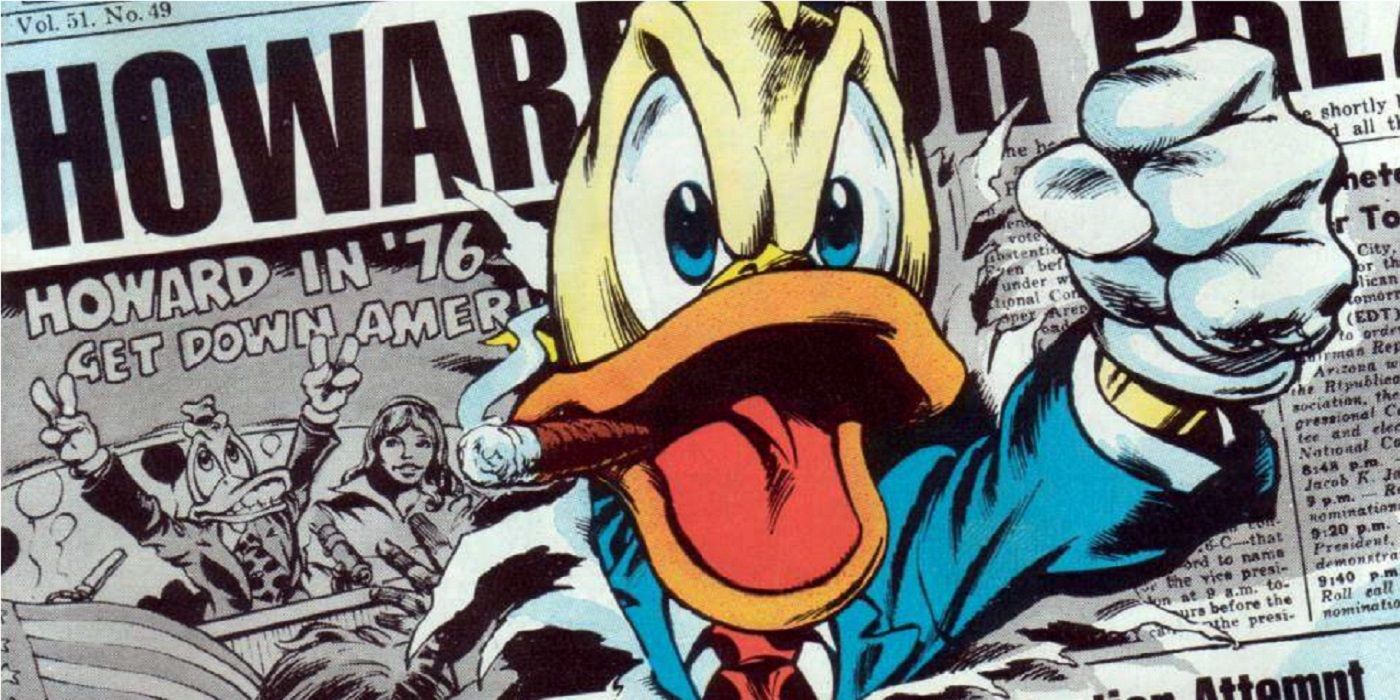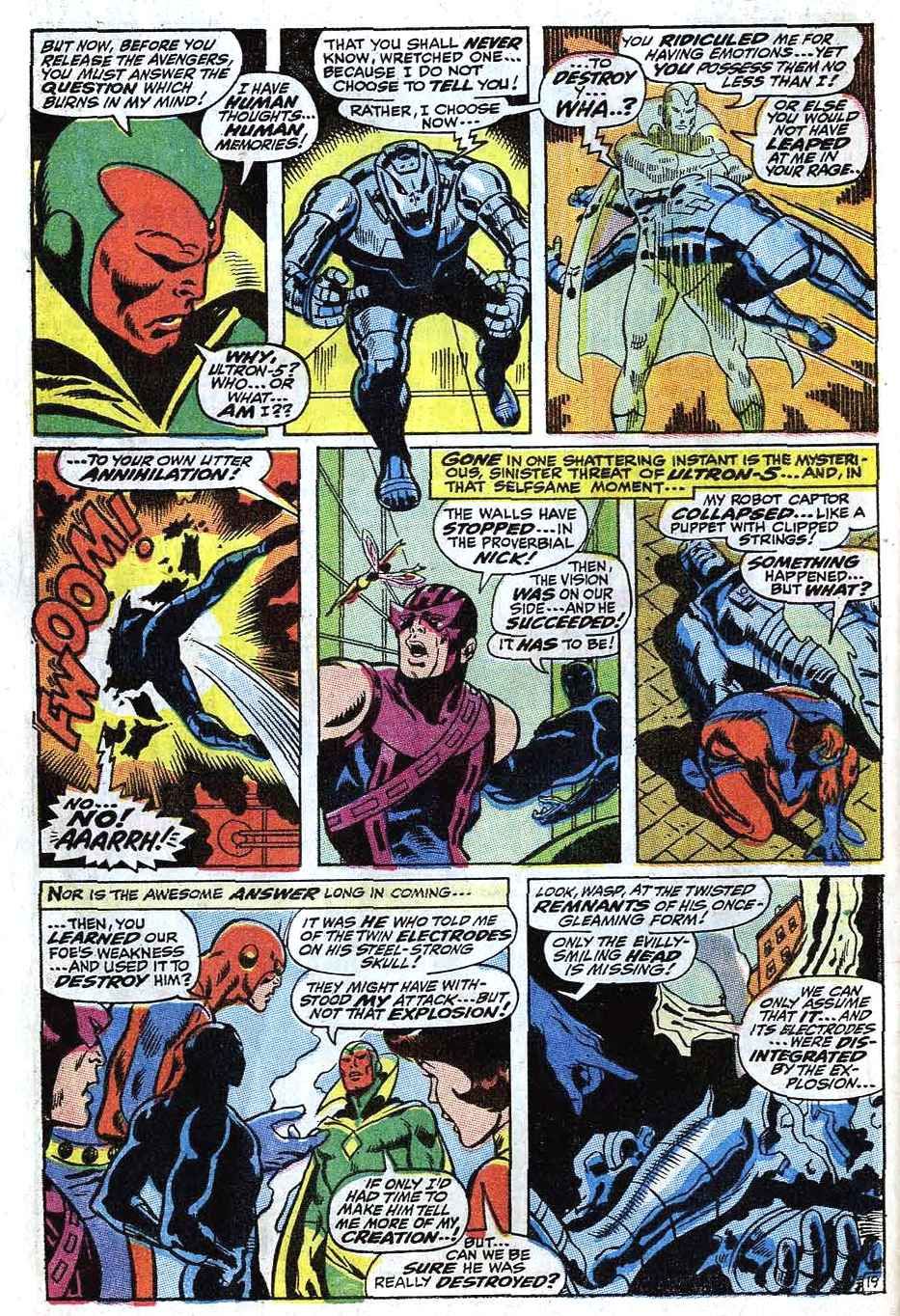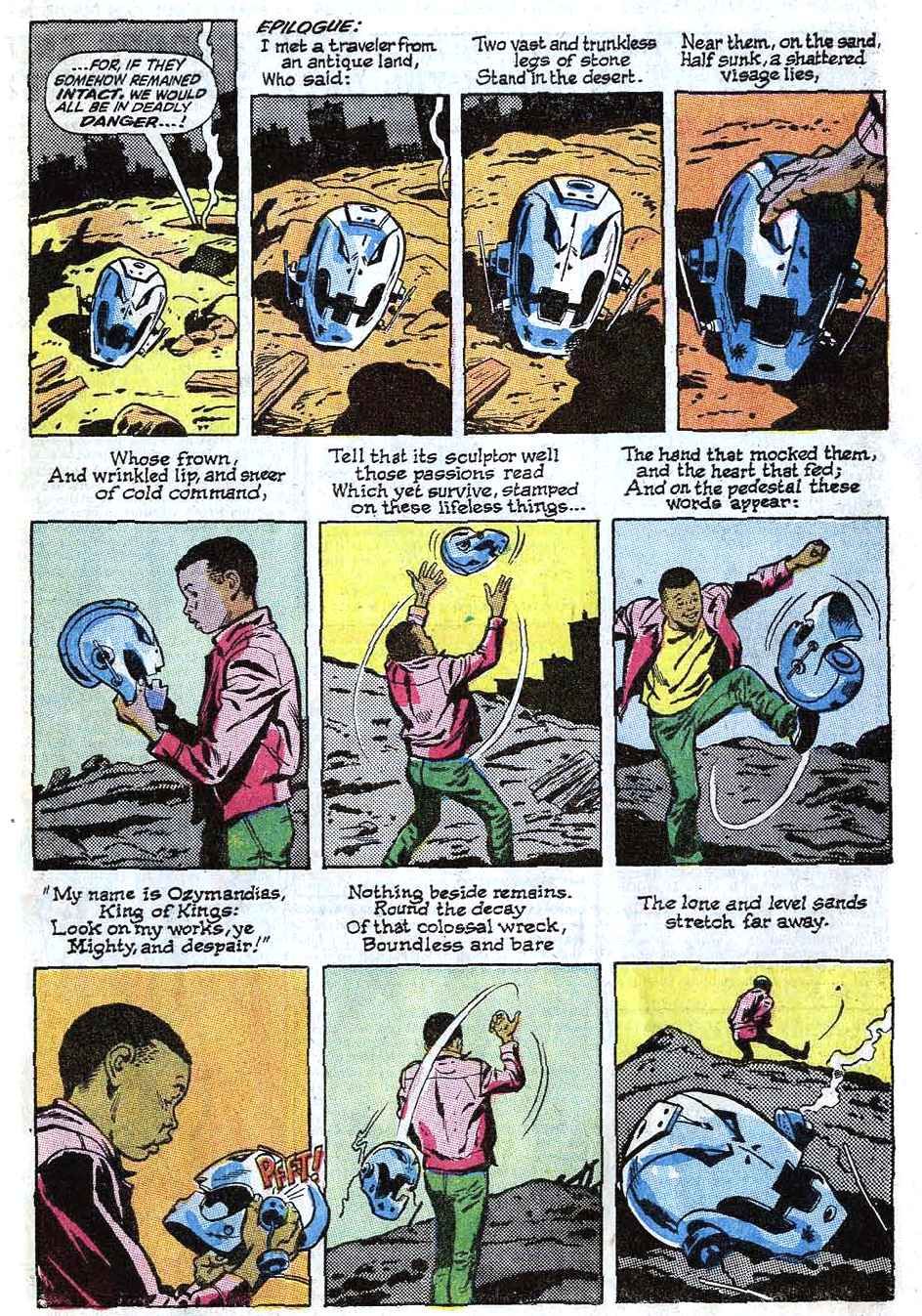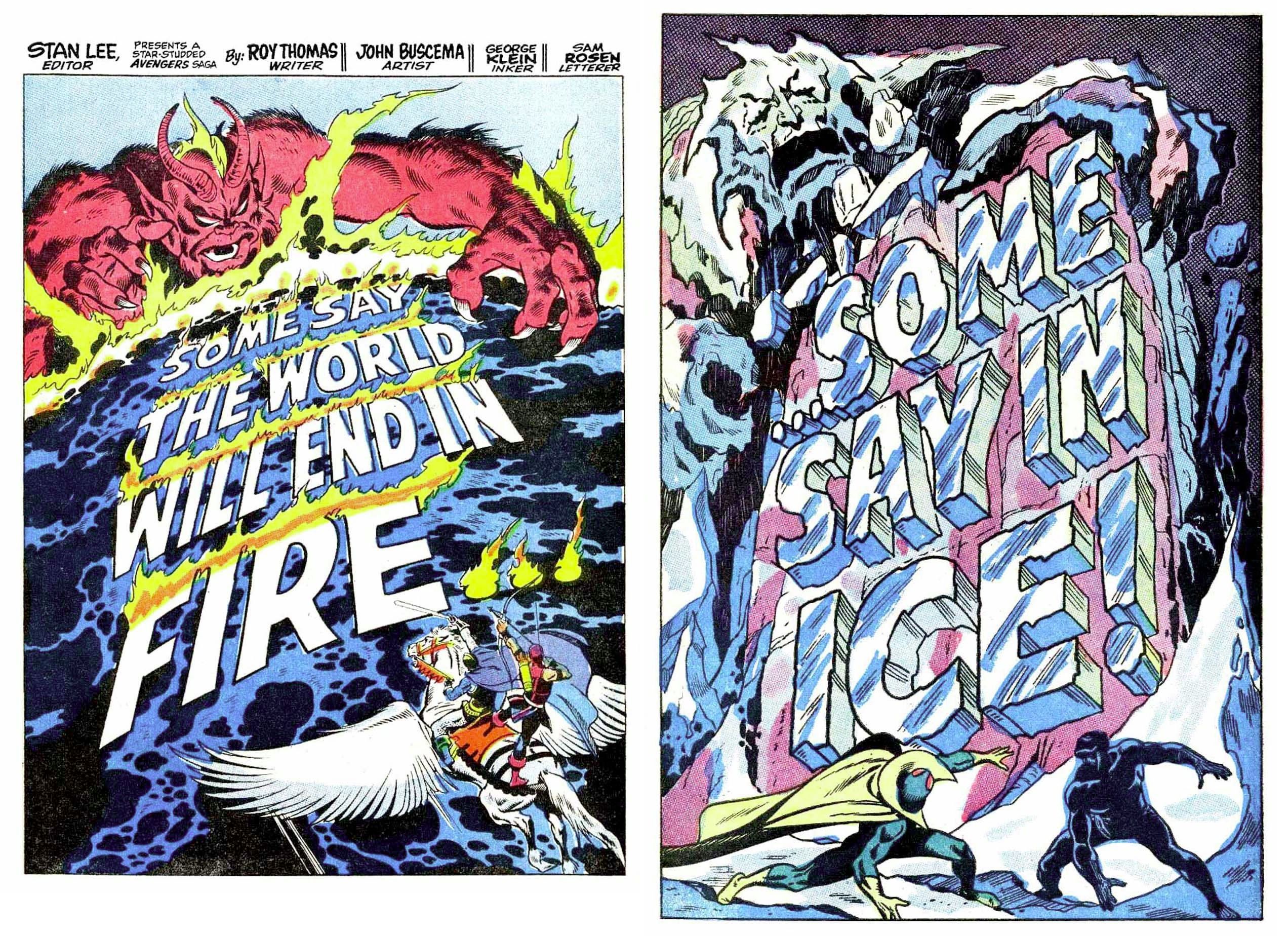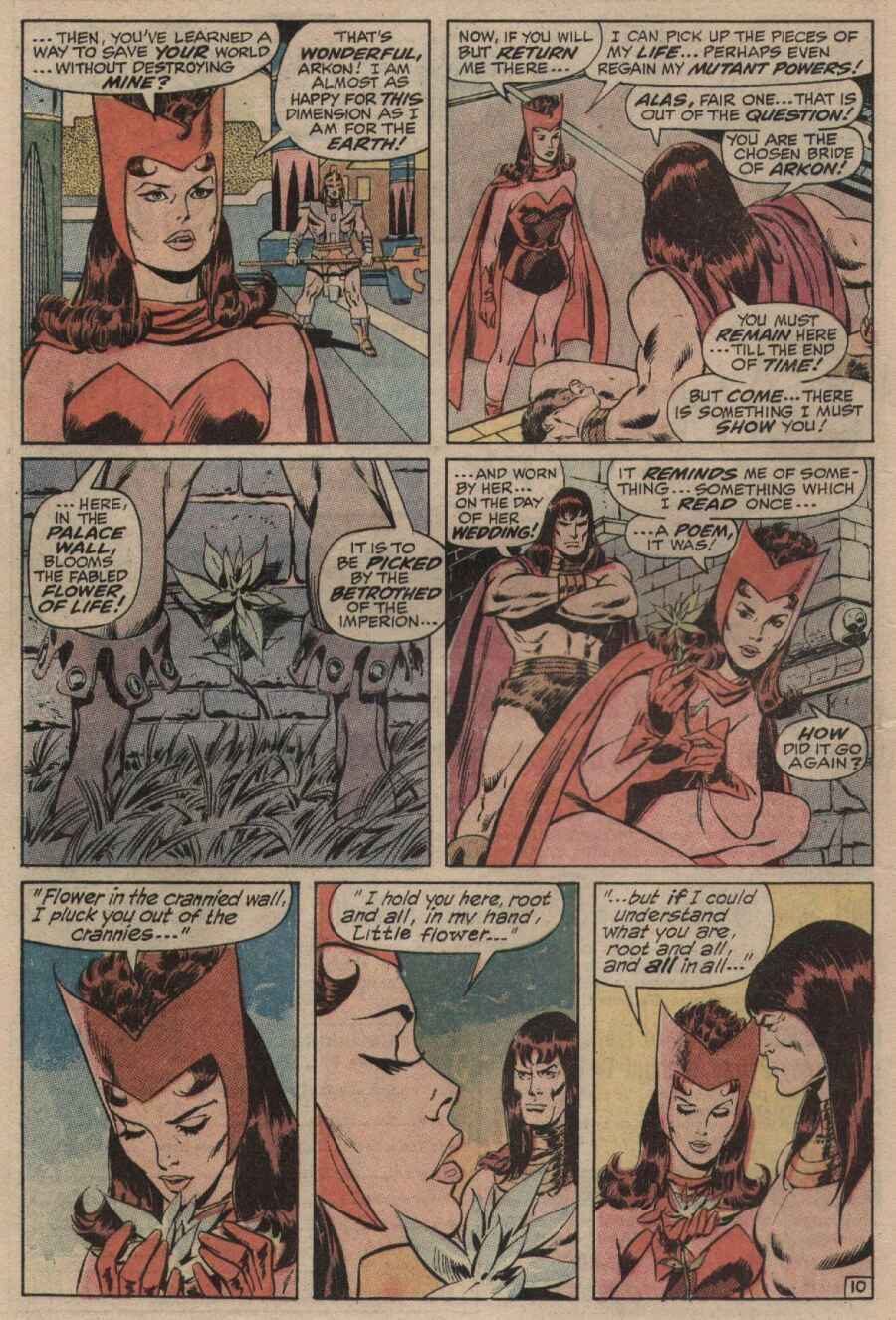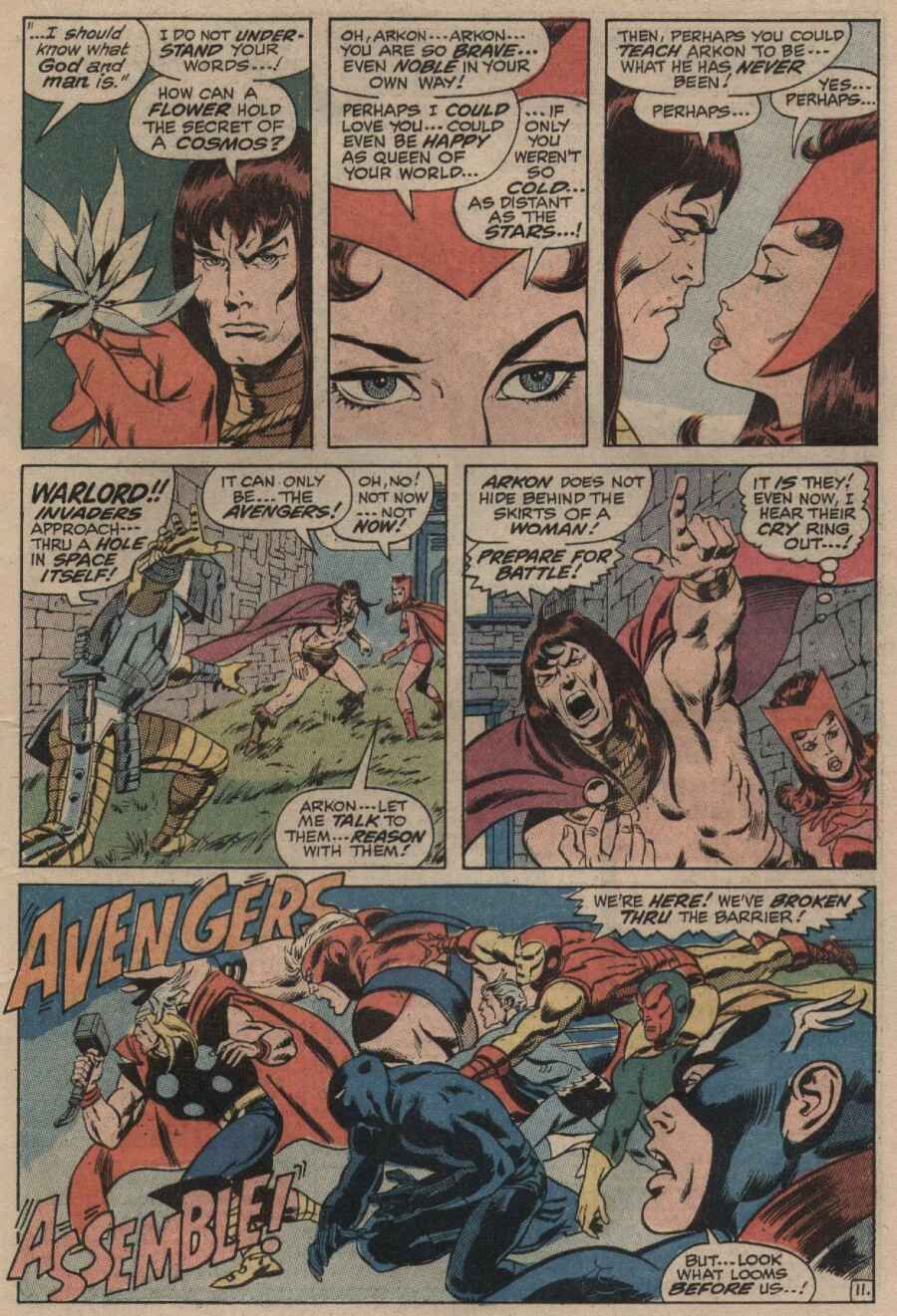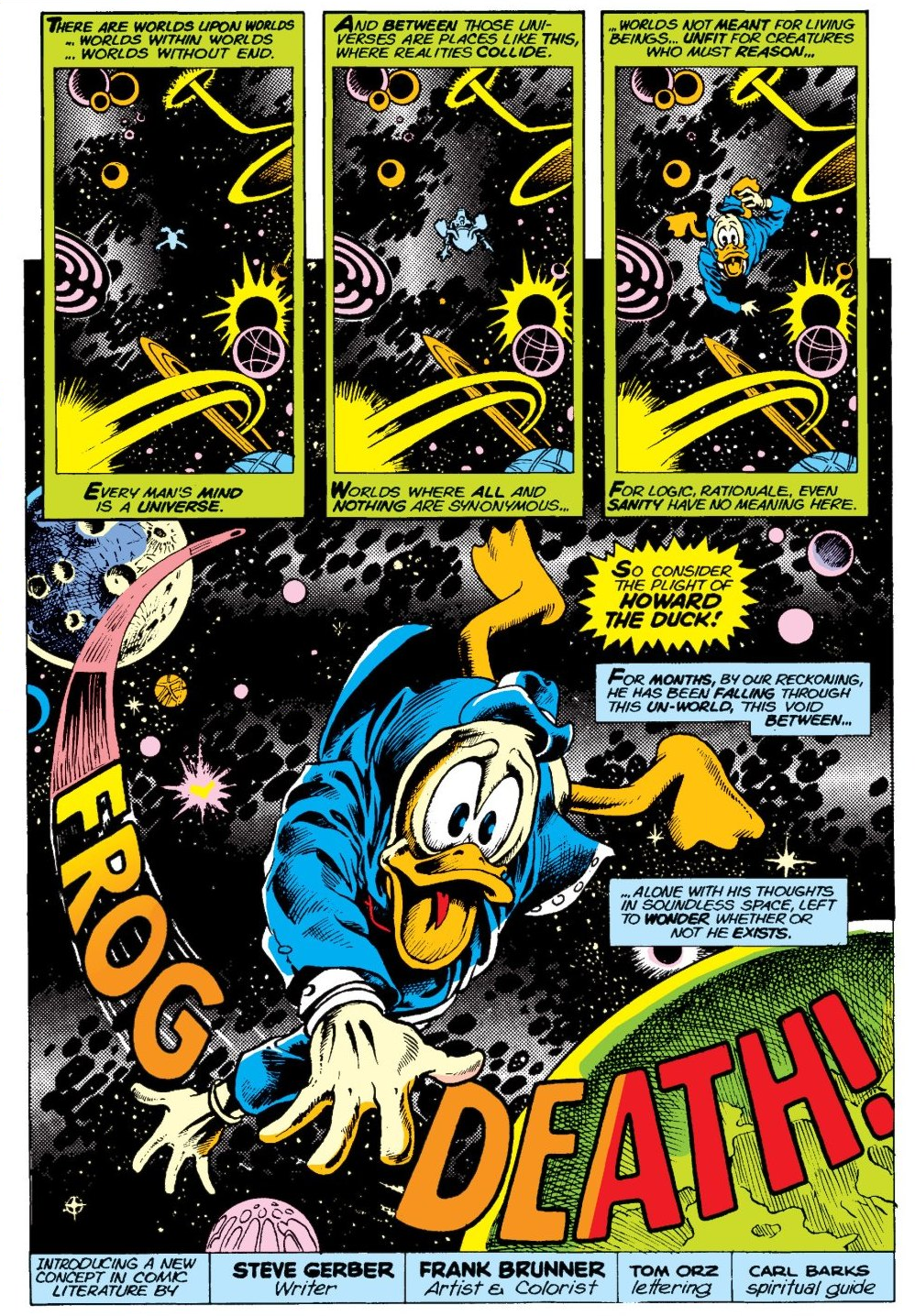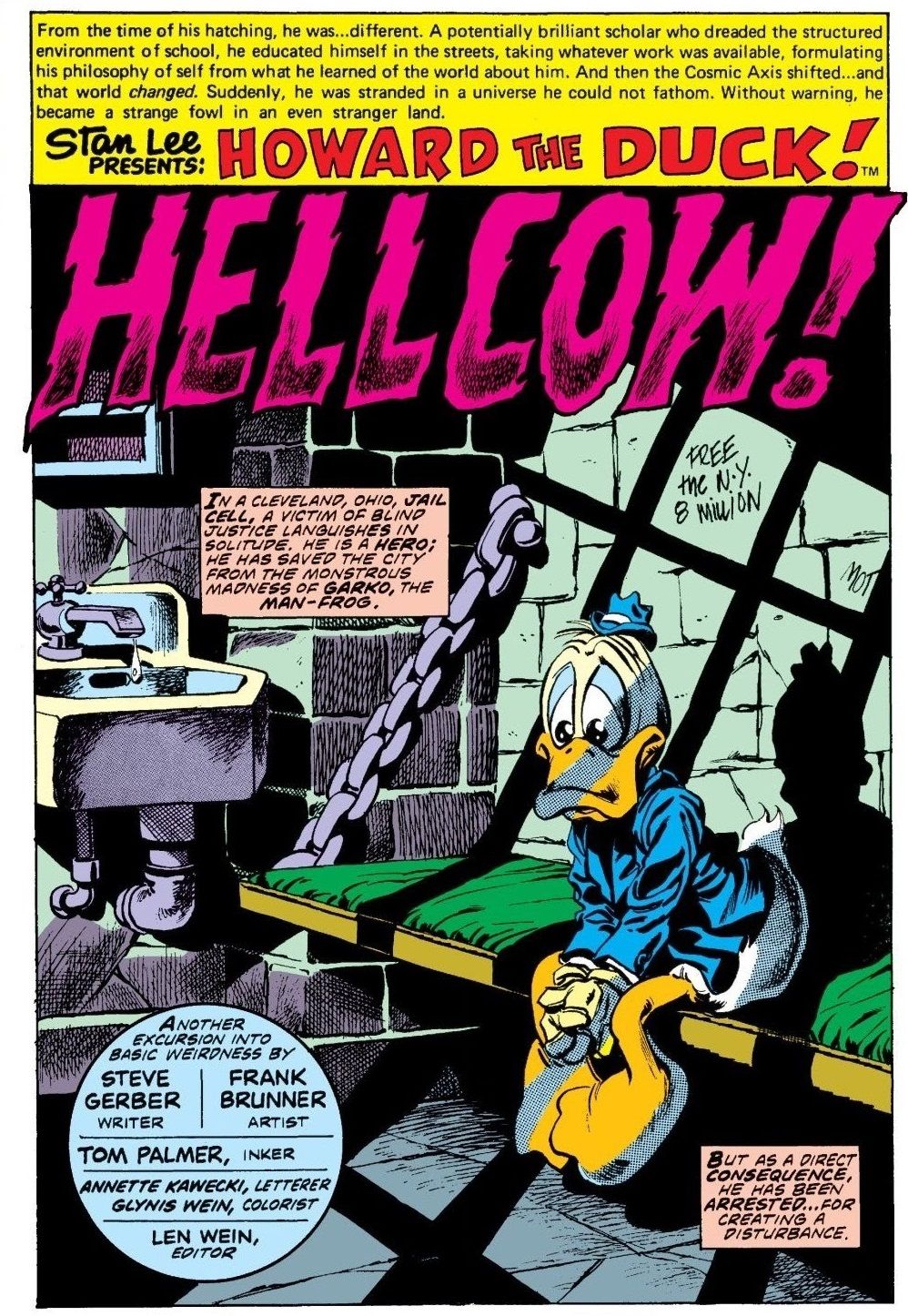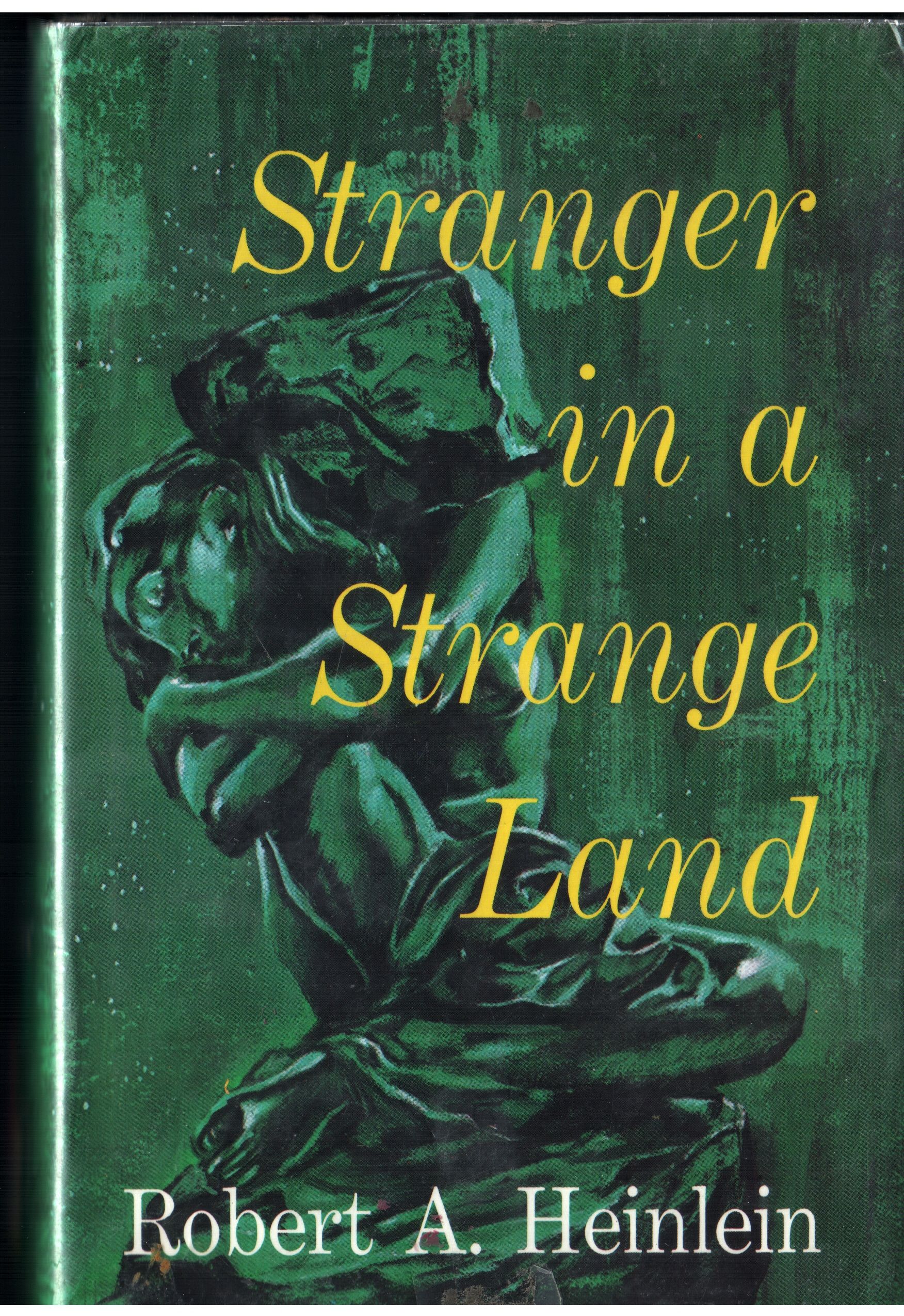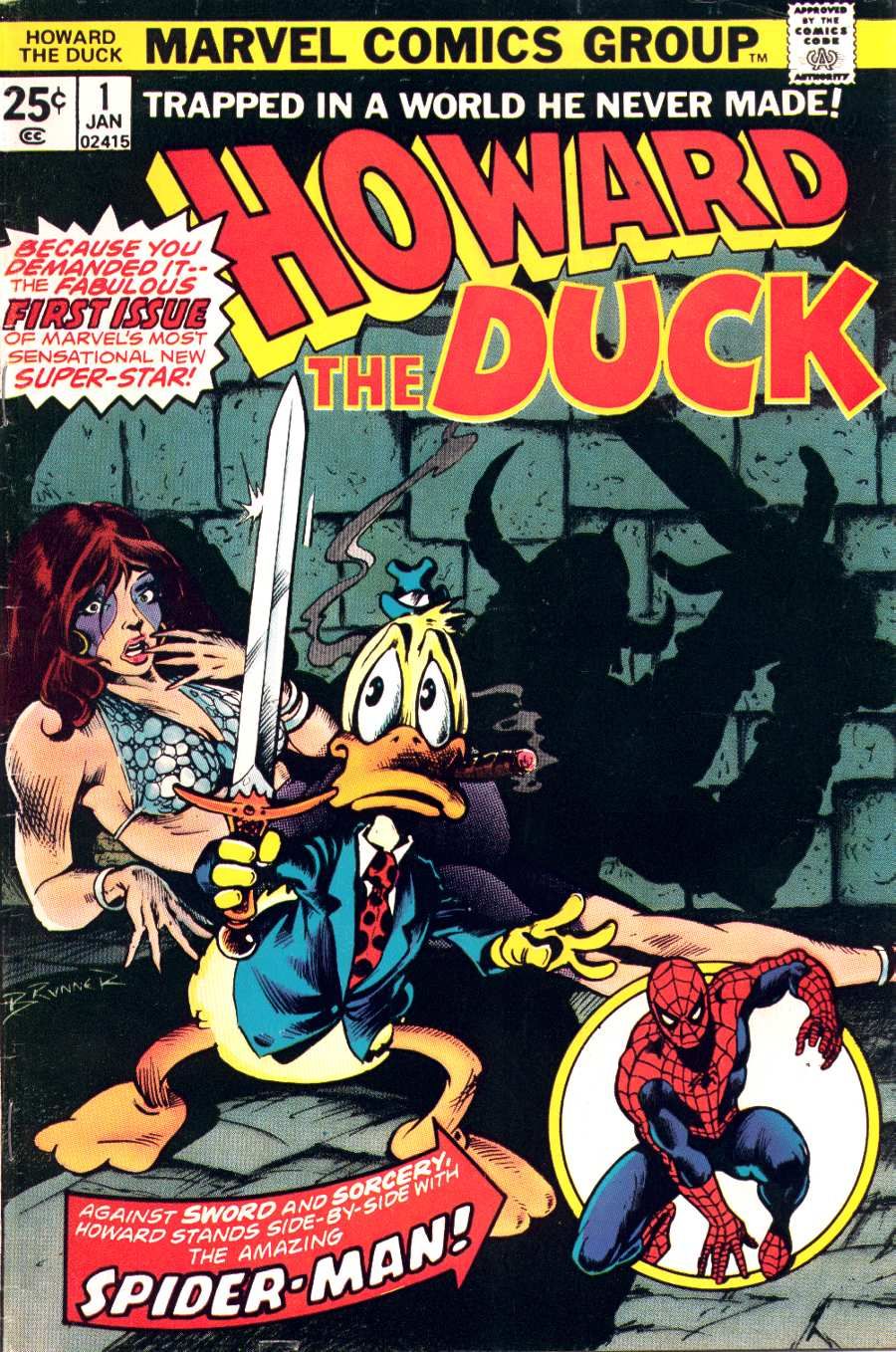Today, we look at the surprising origins of Howard the Duck's tagline - "trapped in a world he never made."
This is Foggy Ruins of Time, a feature that provides the cultural context behind certain comic book characters/behaviors. You know, the sort of then-topical references that have faded into the “foggy ruins of time.” To wit, twenty years from now, a college senior watching episodes of "Seinfeld" will likely miss a lot of the then-topical pop culture humor (like the very specific references in “The Understudy” to the Nancy Kerrigan/Tonya Harding scandal).
This entry took a circuitous route. I first thought about it when I did a Look back last month about Hank Pym's stint in Marvel Feature where he was trapped at bug size for a while. In that piece, I used as the headline "Trapped in a world he never made," which made me think it would be a good idea to explain where that term actually comes from in the first place. So I started to write it up, but then realized that Howard the Duck's origin, which involved one of Marvel's first stories dealing with the Multiverse on a grand level, was interesting in and of itself, so I wrote about that last week. And now, on to the origins of "Trapped in a world he never made"!
MARVEL'S HISTORY OF QUOTING POETRY IN ITS COMIC BOOKS
No offense to Stan Lee, but it was clear that when it came to the use of poetry in Marvel Comics in the late 1960s, Roy Thomas was a step above anyone else, as Thomas routinely turned to poetry with great effect in his comics. The most famous example occurred in Avengers #57 (by Thomas, John Buscema and George Klein). In the issue, the Avengers have just defeated Ultron through the efforts of the Vision, who tricked Ultron into basically destroying himself...
Thomas then had a brilliant idea of working a poem into the final page of the story. Thomas later reflected, "The first story in which Ultron fully appeared and got blown up, I ended with his head lying around and being kicked by a kid in the South Bronx. And instead of any dialogue, I put Percy Shelley’s sonnet ‘Ozymandias.’ When you have a character like that, he’s so far over-the-top that you want to find something to contrast with him."
Thomas then worked with Buscema to make it work perfectly and boy did it stand out...
Just four issues later, Thomas and Buscema put together a striking two-page opening to Avengers #61...
This was from the Robert Frost poem, "Fire and Ice:...
Some say the world will end in fire,
Some say in ice.
From what I’ve tasted of desire
I hold with those who favor fire.
But if it had to perish twice,
I think I know enough of hate
To say that for destruction ice
Is also great
And would suffice.
In Avengers #76 (by Thomas, Buscema and Tom Palmer), a captive Scarlet Witch begins to turn her captor, Arkon, with a poem...
and you can see its effects slowly sinking in...
The poem in question was "Flower in the crannied wall" by Alfred Lord Tennyson...
Flower in the crannied wall,I pluck you out of the crannies,
I hold you here, root and all, in my hand,
Little flower—but if I could understand
What you are, root and all, all in all,
I should know what God and man is.
That was, of course, not the last time that Roy Thomas would work a poem into a comic book, but I think that these were a few of his most notable examples. Either way, it was a clear demonstration of that sort of thing at Marvel ahead of a new generation of young comic book writers who would start at Marvel in the beginning of the 1970s now that Marvel was able to expand its comic book line as Stan Lee stopped scripting as many comic books, so Roy Thomas needed a whole lot of reinforcements.
One of those reinforcements was Steve Gerber.
WHERE DID STEVE GERBER GET HOWARD THE DUCK'S "TRAPPED IN A WORLD HE NEVER MADE" TAGLINE
As I detailed last week, in a storyline in the Man-Thing feature in Fear and then his own series, there was a problem in the Multiverse that saw people getting plucked from other worlds, including Howard the Duck from a world where talking ducks were the main lifeform on the planet. Howard teamed up with Man-Thing and some others, but during the story, he lost his footing while they were traveling through the Multiverse and he seemingly plummeted to his doom.
Instead, in Giant-Size Man-Thing #4, in a story by Gerber and Frank Brunner, we see that Howard just continued to fall until he landed back on Marvel's Earth...
In the next issue, the Howard the Duck feature by Gerber and Brunner (with Tom Palmer now on inks) opens by describing Howard as a "strange fowl in a stranger land"...
This is a reference to the Robert Heinlen novel, Stranger in a Strange Land...
Which, in turn, is a reference to Exodus 2:22 in the Bible, “And she bare him a son, and he called his name Gershom: for he said, I have been a stranger in a strange land.”
That story led to Howard getting his own ongoing series, and the tagline for the book, right there on the cover, was "Trapped in a world he never made"...
The line is from the A.E. Housman poem, "The Laws of God, the Laws of Man"....
The laws of God, the laws of man,He may keep that will and can;
Not I: let God and man decree
Laws for themselves and not for me;
And if my ways are not as theirs
Let them mind their own affairs.
Their deeds I judge and much condemn,
Yet when did I make laws for them?
Please yourselves, say I, and they
Need only look the other way.
But no, they will not; they must still
Wrest their neighbor to their will,
And make me dance as they desire
With jail and gallows and hell-fire.
And how am I to face the odds
Of man’s bedevilment and God’s?
I, a stranger and afraid
In a world I never made.
They will be master, right or wrong;
Though both are foolish, both are strong.
And since, my soul, we cannot fly
To Saturn nor to Mercury,
Keep we must, if keep we can,
These foreign laws of God and man.
Obviously, "trapped" is added, but the gist is there. And so now you know the origins of Howard the Duck's famous tagline!
If anyone else has any suggestions for Foggy Ruins of Time, feel free to e-mail me at brianc@cbr.com

